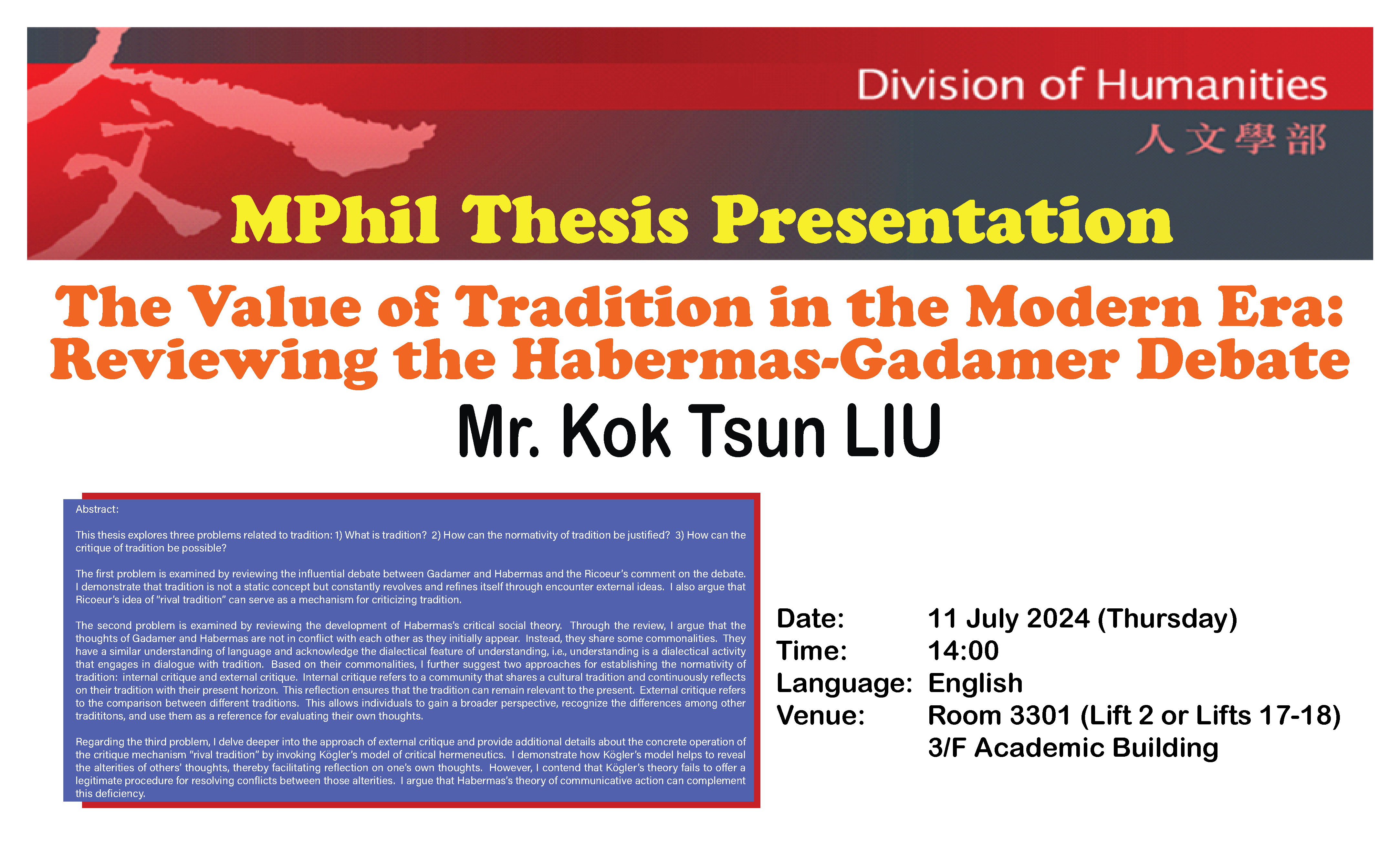Abstract:
This thesis explores three problems related to tradition: 1) What is tradition? 2) How can the normativity of tradition be justified? 3) How can the critique of tradition be possible?
The first problem is examined by reviewing the influential debate between Gadamer and Habermas and the Ricoeur’s comment on the debate. I demonstrate that tradition is not a static concept but constantly revolves and refines itself through encounter external ideas. I also argue that Ricoeur’s idea of “rival tradition” can serve as a mechanism for criticizing tradition.
The second problem is examined by reviewing the development of Habermas’s critical social theory. Through the review, I argue that the thoughts of Gadamer and Habermas are not in conflict with each other as they initially appear. Instead, they share some commonalities. They have a similar understanding of language and acknowledge the dialectical feature of understanding, i.e., understanding is a dialectical activity that engages in dialogue with tradition. Based on their commonalities, I further suggest two approaches for establishing the normativity of tradition: internal critique and external critique. Internal critique refers to a community that shares a cultural tradition and continuously reflects on their tradition with their present horizon. This reflection ensures that the tradition can remain relevant to the present. External critique refers to the comparison between different traditions. This allows individuals to gain a broader perspective, recognize the differences among other tradititons, and use them as a reference for evaluating their own thoughts.
Regarding the third problem, I delve deeper into the approach of external critique and provide additional details about the concrete operation of the critique mechanism “rival tradition” by invoking Kögler’s model of critical hermeneutics. I demonstrate how Kögler’s model helps to reveal the alterities of others’ thoughts, thereby facilitating reflection on one’s own thoughts. However, I contend that Kögler’s theory fails to offer a legitimate procedure for resolving conflicts between those alterities. I argue that Habermas’s theory of communicative action can complement this deficiency.
